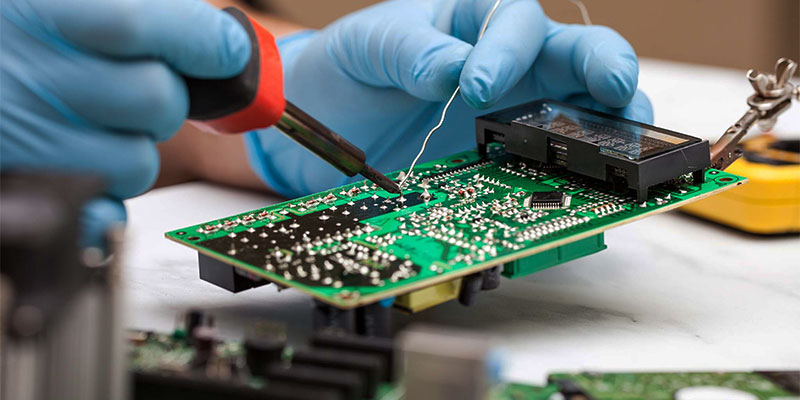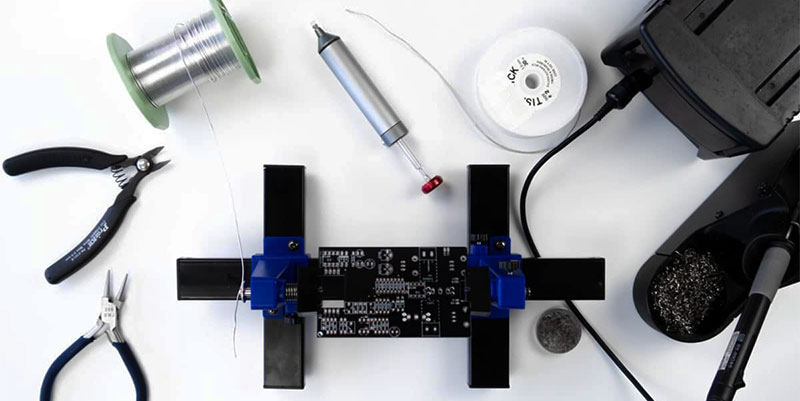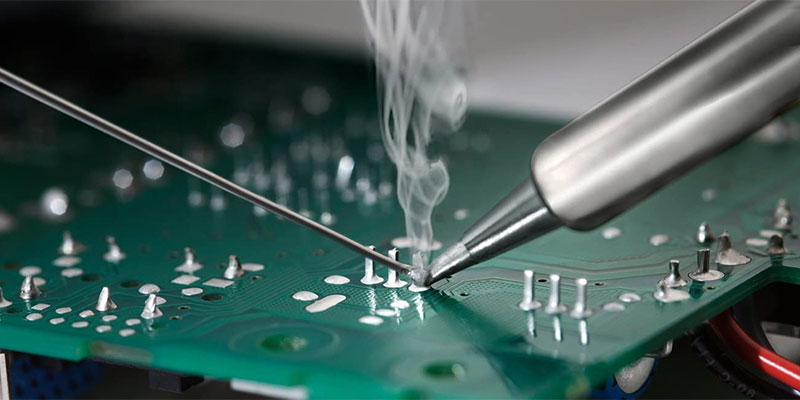When it comes to soldering circuit boards, you need to use a specially formulated solder to work with the materials in the circuit board. There are many different types of solder available, and each has its own set of characteristics that can make it better or worse suited for a particular application. This article will explore the factors you need to consider when choosing a solder for circuit boards.
Circuit boards are a key component of many electronic devices. The solder you use to connect the components on the circuit board is important for its performance. We will discuss factors you need to consider when selecting a solder for your circuit boards. We will also provide a few tips on choosing the right solder for your project. So, if you are curious about what type of solder to use for your next electronics project, keep reading!
Types of solder for circuit boards

The first step in any project is choosing the right solder type for your needs. There are many different types to choose from, but each has its own specific use and function.
Circuit boards are an integral part of any electronic device, so it is important to know which types of solder are best for the job. There are several different options when choosing a solder for circuit boards, including lead-free, led, and organic. Lead-free is often used in industrial settings because it has low toxicity levels and can be recycled easily. Leaded solder is more common in-home projects because it is easy to work with but has higher toxicity levels than other types of solder that should be handled carefully to avoid exposure. Organic solders contain no lead or cadmium, making them safe for use on food-grade goods, but they also have lower melting temperatures than the average type of paste or wire solder.
What size solder is best for circuit boards?

Circuit boards are composed of various components that must be soldered together. The type and size of solder used for this process are dependent on many factors such as the number of pins, how much heat will be required to melt the solder, etc. Different sizes include 0603 (very small), 0805 (smaller than a penny), 1206 (smaller than a dime), and 1812 (larger).
The size of the solder you choose to use for your circuit board is important because it can affect how fast your circuit boards are produced. The larger the number, the thinner the solder is. Thinner solder will flow more easily over larger areas on a circuit board and take less time to dry. This benefits production speed immensely! However, some disadvantages come with using thin solders, such as the increased risk of bridging between components or increased heat, which could cause more melting onto delicate circuitry. Therefore, it’s always best to ensure you have enough thicker solder on hand for when you need it!


